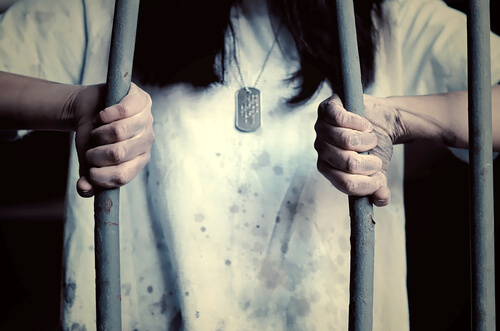Learned Helplessness: a Hopeless, Deep Hole

Learned helplessness is one of the worst holes we could ever fall into. It is the perfect breeding ground for anxiety and depression. And actually, it is both a consequence and a cause of lacking assertiveness (“Why cause conflict by expressing our opinion if it won’t even do anything?”) It turns us into empty bodies with dead souls.
This condition could be summarized as “no matter what you do, it will be wrong.” Or “no matter what you do, it doesn’t matter, it won’t do anything. The result will always be the same.”
And this is where learned helplessness arises. Helplessness we have learned as a result of having tried different ways of acting, and seeing that they don’t affect the results. Thus, we have no motivation to respond to our situation.
Maybe you’ve found yourself in this kind of situation. At work or in a relationship, for example. In an environment where there’s another person who is the judge of whether what you do is right or wrong.
It’s not rational, it’s not consistent. What you do, whatever it is, will almost always be wrong, and the times that it isn’t wrong, you have no idea why or how it’s okay. So you can’t repeat it, no matter how hard you try.
Learned helplessness causes us to give up control
Somehow, behind this incongruous attitude we are hearing something like, “I am the one who judges what you do. I make the rules.” People who cause learned helplessness in others are those who, having influence over them, make a value judgement without no explanation.

So, what lesson does a person learn when he receives this kind of treatment? That it’s not worth making an effort because the result is random. The feeling is that no matter what he does, he can’t control the outcome.
This lack of control over what happens to us is agonizing and very limiting. Since apparently we can’t do anything about it.
This is often the beginning of emotional abuse. “I decide how you are going to feel. You do not decide. I have control, not you.”
Leaving is the solution, but learned helplessness makes it hard
Martin Seligman discovered the phenomenon in the 70’s. In an experiment that could not be done today because of its ethical implications, Seligman found that dogs, when subjected to shocks regardless of their attempts to escape, ended up adopting a passive attitude towards them. They resigned themselves to suffer in silence.
This phenomenon was quickly correlated with the causes and attitudes of many people who have fallen into the pit of depression. The anxiety, the depression, the absolute lack of motivation end up controlling the person’s attitude and the behavior. Eventually, they become absolutely passive.
Thus, if an opportunity to change the situation appears, they won’t see it, they’ll let it pass by. Their faith and hope have disappeared because they feel that whatever they do, whatever direction they choose, they will still not see the results they want.
This psychological phenomenon is very powerful because it totally hijacks our ability to act. It steals our creativity to see alternatives and solve problems. It makes us blind to the solutions to our problems. It’s extremely hard to escape this destructive place.
Helplessness seizes our thoughts, behaviors, and emotions
Many people feel unable to leave a situation that is harming them. They are totally conditioned by this helplessness they have learned. Helplessness that seizes the thoughts, behaviors, and emotions.
To break this growing, downward spiral, you have to get to the root of the problem. We can’t stay on the surface. Telling someone to leave the prison they’re in, saying “how do you not see?” doesn’t help.

They don’t want to feel like this. They didn’t seek it out. Therefore, they must understand how they ended up here. How did they end up giving away control of what happens to them? The solution is to empower them. Give them back control over their own life.
A control that was lost some time ago, stolen by the person who mistreated them. However, their life has always been their own. They just need help getting it back. Understanding what has happened and accepting it is the first step on this path.
This text is provided for informational purposes only and does not replace consultation with a professional. If in doubt, consult your specialist.








